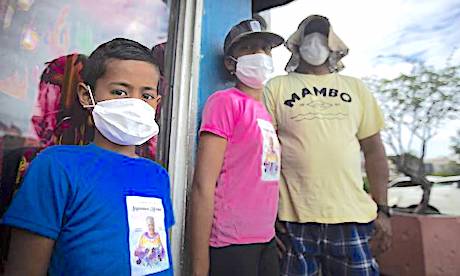In Samoa, fifty-three people are now dead, after having contracted measles.
More than 3000 people have now been infected with the disease and doctors say the death toll is likely to rise.
George Fa’alogo, Caritas Aotearoa New Zealand’s (CANZ) humanitarian coordinator, is in close contact with Caritas Samoa.
He says, “We’re at a loss to describe the impact of this outbreak, especially for those families who have lost more than one child.’
He said CANZ would continue to support Caritas Samoa so they may continue their outreach work in these communities.
Caritas Samoa has been collecting supplies such as food, clothing, hand sanitiser, bed sheets, pillows, towels and medical face masks for hospitals, clinics and families.
They are also mobilising volunteers to put together family packages of these supplies that patients and their families can pick up from donation stations outside of hospitals and clinics.
Samoa declared a state of emergency on November 15 and a mass vaccination campaign was activated soon after.
The government has announced its intention to make immunisation compulsory.
Schools have been closed, and children under the age of 17 have been banned from public gatherings.
On Saturday the streets of Apia were virtually empty.
Many in the community are tracing the current epidemic back to the deaths of two babies on July 6 last year.
At Tuasivi hospital, two nurses had mixed the wrong liquid with MMR vaccines.
The deaths provoked widespread fear and confusion among parents – and a great deal of mistrust of vaccinations.
Temporary clinics have been set up across the country to provide vaccinations and to treat people who are showing symptoms of measles.
Almost 45,000 people have now received the measles vaccine.
Caritas Aotearoa New Zealand, together with Caritas Australia and Catholic Relief Services, are sending a solidarity grant to Caritas Samoa to assist them in their work.
The funding will help in the collection and distribution of essential supplies.
It will also provide transportation for medical professionals and mobile clinics to vaccinate people in rural areas.
You can support Caritas’ relief efforts for emergencies such as this by donating to their Pacific Relief Fund on our website:
Source
- Supplied: Amanda Gregan
Caritas Aotearoa New Zealand - tvnz.co.nz
- stuff.co.nz
- rnz.co.nz
- Image: stuff.co.nz
